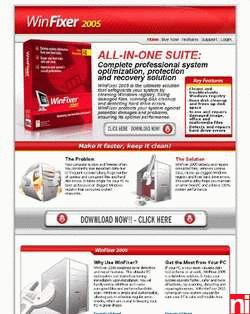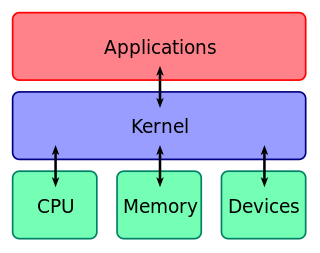A rootkit is a collection of computer software, typically malicious, designed to enable access to a computer or an area of its software that is not otherwise allowed and often masks its existence or the existence of other software. The term rootkit is a compound of "root" and the word "kit". The term "rootkit" has negative connotations through its association with malware.

Antivirus software, also known as anti-malware, is a computer program used to prevent, detect, and remove malware.

Gen Digital Inc. is a multinational software company co-headquartered in Tempe, Arizona and Prague, Czech Republic. The company provides cybersecurity software and services. Gen is a Fortune 500 company and a member of the S&P 500 stock-market index. The company also has development centers in Pune, Chennai and Bangalore. Its portfolio includes Norton, Avast, LifeLock, Avira, AVG, ReputationDefender, and CCleaner.
Norton AntiVirus is an anti-virus or anti-malware software product founded by Peter Norton, developed and distributed by Symantec since 1990 as part of its Norton family of computer security products. It uses signatures and heuristics to identify viruses. Other features included in it are e-mail spam filtering and phishing protection.
Norton Internet Security, developed by Symantec Corporation, is a discontinued computer program that provides malware protection and removal during a subscription period. It uses signatures and heuristics to identify viruses. Other features include a personal firewall, email spam filtering, and phishing protection. With the release of the 2015 line in summer 2014, Symantec officially retired Norton Internet Security after 14 years as the chief Norton product. It was superseded by Norton Security, a rechristened adaptation of the Norton 360 security suite.

WinFixer was a family of scareware rogue security programs developed by Winsoftware which claimed to repair computer system problems on Microsoft Windows computers if a user purchased the full version of the software. The software was mainly installed without the user's consent. McAfee claimed that "the primary function of the free version appears to be to alarm the user into paying for registration, at least partially based on false or erroneous detections." The program prompted the user to purchase a paid copy of the program.

Norton SystemWorks is a discontinued utility software suite by Symantec Corp. It integrates three of Symantec's most popular products – Norton Utilities, Norton CrashGuard and Norton AntiVirus – into one program designed to simplify solving common PC issues. Backup software was added later to high-end editions. SystemWorks was innovative in that it combined several applications into an all-in-one software for managing computer health, thus saving significant costs and time often spent on using different unrelated programs. SystemWorks, which was introduced in 1998 has since inspired a host of competitors such as iolo System Mechanic, McAfee Nuts And Bolts, Badosoft First Aid and many others.
Rogue security software is a form of malicious software and internet fraud that misleads users into believing there is a virus on their computer and aims to convince them to pay for a fake malware removal tool that actually installs malware on their computer. It is a form of scareware that manipulates users through fear, and a form of ransomware. Rogue security software has been a serious security threat in desktop computing since 2008. An early example that gained infamy was SpySheriff and its clones, such as Nava Shield.

Kernel Patch Protection (KPP), informally known as PatchGuard, is a feature of 64-bit (x64) editions of Microsoft Windows that prevents patching the kernel. It was first introduced in 2005 with the x64 editions of Windows XP and Windows Server 2003 Service Pack 1.

SpySheriff is malware that disguises itself as anti-spyware software. It attempts to mislead the user with false security alerts, threatening them into buying the program. Like other rogue antiviruses, after producing a list of false threats, it prompts the user to pay to remove them. The software is particularly difficult to remove, since it nests its components in System Restore folders, and also blocks some system management tools. However, SpySheriff can be removed by an experienced user, antivirus software, or by using a rescue disk.

PC Tools, formerly known as WinGuides.com, was a software company acquired by Symantec in 2008; the new owner eventually discontinued the PC Tools name. Company headquarters were in Australia, with offices in Luxembourg, the United States, United Kingdom, Ireland and Ukraine. The company had previously developed and distributed security and optimization software for the Mac OS X and Microsoft Windows platforms.
Norton AntiBot, developed by Symantec, monitored applications for damaging behavior. The application was designed to prevent computers from being hijacked and controlled by hackers. According to Symantec, over 6 million computers have been hijacked, and the majority of users are unaware of their computers being hacked.
ContraVirus is a rogue spyware application that poses as a legitimate anti-spyware program. The application uses a false scanner to force computer users to pay for the removal of non-existent spyware items. It may also be known as ExpertAntivirus.
SONAR is the abbreviation for Symantec Online Network for Advanced Response. Unlike virus signatures, SONAR examines the behavior of applications to decide whether they are malicious. SONAR is built upon technology Symantec acquired in its late 2005 purchase of WholeSecurity, a developer of behavioral anti-malware and anti-phishing software solutions in the United States.

MacSweeper is a rogue application that misleads users by exaggerating reports about spyware, adware or viruses on their computer. It is the first known "rogue" application for the Mac OS X operating system. The software was discovered by F-Secure, a Finland-based computer security software company, on January 17, 2008.
VirusHeat is malware that disguises itself as a legitimate anti-virus program. VirusHeat tricks users into buying the full version of the program through repeated false alerts and popups, purporting to alert the user that there is a system error or they are infected, and must buy the full version to remove. It was launched on February 8, 2008.
Norton PC Checkup was a program downloaded either separately or as a bundle with updates to Adobe Flash, provided to enable users to perform a system checkup of their Microsoft Windows based personal computers. It was launched by Symantec in October 2008.

Norton Insight whitelists files based on reputation. Norton-branded antivirus software then leverages the data to skip known files during virus scans. Symantec claims quicker scans and more accurate detection with the use of the technology.

Trojan:Win32/FakeSysdef, originally dispersed as an application called "HDD Defragmenter" hence the name "FakeSysdef" or "Fake System Defragmenter", is a Trojan targeting the Microsoft Windows operating system that was first documented in late 2010.
Norton 360 was an "all-in-one" security suite for the consumer market developed by Symantec. Originally released in 2006, it was discontinued in 2014; its features were carried over to its successor, Norton Security. However, in 2019, Symantec released a "NEW Norton 360", as a product replacement for Norton Security.










